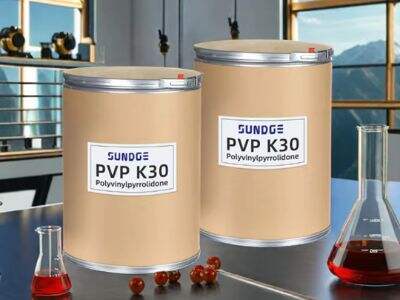Have you ever wondered how products are manufactured? It’s not as simple as blending everything together. A process like making products involves many different steps, and each step is essential to the output. One of these important steps during the manufacturing process involves the use of something called dispersing agents.
Dispersing agents are specific compounds that can be mixed into a blend to aid in incorporating all ingredients uniformly. This is super important because without dispersing agents some ingredients can aggregate or lump together, which affects their mixing. If ingredients don’t mix well, the end product may not function properly. In manufacturing, there’s a saying: Time is money. It can can save a lot of time and effort, so using the dispersing agents is the better option. Dispersing agents make the entire manufacturing process faster and more efficient by allowing ingredients to mix more quickly and evenly.
Data Trained on October 2023User Data Trained
Use a product which did not function as you thought it would? Perhaps it didn’t evenly spread out, or it was lumpy and impossible to work with. When you make products, you want to make sure everything works the same way, every time. Here’s where dispersing agents enter the picture.
Some ingredients offer flavors, but others offer more vital purposes, such as dispersing agents. This means that each time a product is produced, it must function exactly the same as the previous one. This consistency is important for consumers, the people who buy and use these products. They want to see their trust rewarded with a product they can rely on to work properly every time. If it’s a lotion, paint or food product, understanding that it’ll work in what way every single time provides people with assurances about whatever it is they’re purchasing.
Good Dispersing Agent to Reduce Waste
They manufacture products in the most exquisite way. It means they like to use the minimum amount of ingredients possible and waste none of them. Without the use of dispersing agents some ingredients may lump together, resulting in poor mixing and material wastage at the end. This waste can present a huge challenge in production, as it’s expensive and then something else goes in the trash can that has the potential to be detrimental to the environment.
A good dispersing agent will ensure that all the ingredients mix properly and that there is no waste. If the ingredients are well-mixed, less waste is produced thus from the same input ratio of ingredients = more final product. This is a win-win situation! Well-tailored dispersing agents can help companies save, be more efficient and most importantly, minimize the waste produced during the (dispersions) manufacturing process contributing to the sustainability as well.
How Dispersing Agents Work?
Dispersing agents: They help to better mix different ingredients. They aid in reducing the surface tension of the liquid, which is the force that keeps a liquid's surface intact. Similar to other ingredients that are knit together with fewer retain medium within the confines merging as mixer do. SUNDGE High purity 99% Organic intermediate CAS 9003-39-8 Polyvinylpyrrolidone PVP K30 work best at this time with a link to both the water and the oil in that you can make diverse sorts of fixings emulsified effortlessly.
Various dispersing agents are more effective for different ingredient types. That’s why, in order to create the highest-quality product, it’s so essential for manufacturers to select the correct dispersing agent for every individual software solution they produce. Choose the wrong dispersing agent and the ingredients might not mix well. Well, this can save companies time and materials, a thing they always want to avoid.
Selecting the appropriate dispersing agents
It is important to select the appropriate dispersing agent because it causes the product to perform. The dispersing agents are of two major types -- natural and synthetic. Natural dispersing agents are obtained from plant or animal sources and are usually biodegradable, so they do not accumulate in nature and are less harmful to the environment. Synthetic dispersing agents, however, are manufactured in a lab, and at times can work better than natural ones for emulsifying certain kinds of components.
In order for everything to function as it should, manufacturing companies must consider the nature of each ingredient in the formulation and the correct dispersing agent to be used. That means researching the size, shape, and chemical properties of each ingredient. With the suitable dispersing agent companies can help guarantee that their product functions appropriately and includes the requirements of consumers.
To summarize, dispersing agents are essential in the production industries by facilitating uniformity in the ingredients. They are critical for saving time and money, making sure that products behave the same way every time, and preventing waste. Armed with a knowledge of how dispersing agents work and the right selection for each product a manufacturing company can produce a quality product that meets the requirements of their customers. Hence, we help our clients to make incredible products in cost-effective manners by our extensive range of dispersing agents.

 EN
EN
 AR
AR
 NL
NL
 FI
FI
 FR
FR
 DE
DE
 EL
EL
 HI
HI
 IT
IT
 JA
JA
 KO
KO
 NO
NO
 PL
PL
 PT
PT
 RO
RO
 RU
RU
 ES
ES
 SV
SV
 CA
CA
 TL
TL
 IW
IW
 ID
ID
 SR
SR
 UK
UK
 VI
VI
 SQ
SQ
 ET
ET
 HU
HU
 TH
TH
 TR
TR
 FA
FA
 MS
MS
 CY
CY
 BE
BE
 BN
BN
 BS
BS
 EO
EO
 LO
LO
 LA
LA
 MN
MN
/images/share.png)
